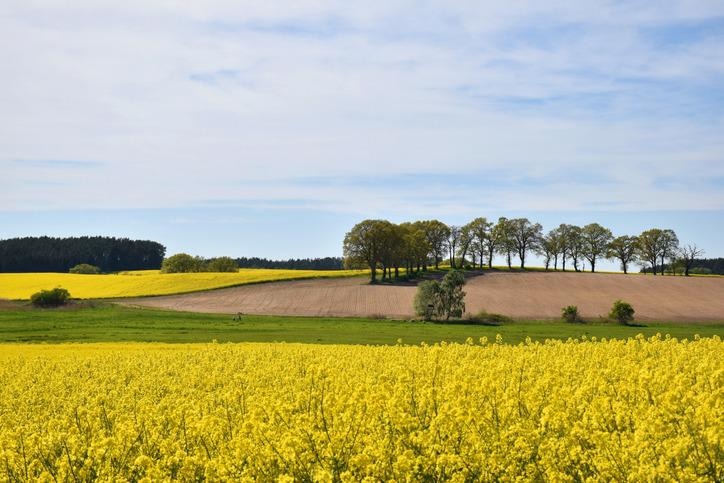The amount of greenhouse gas (GHG) emissions discharged during the making of vegetable oil has been revealed by a new international study, emphasizing the necessity for more sustainable growing solutions.

Image Credit: University of Nottingham
Researchers from the University of Nottingham’s Future Food Beacon performed the first analysis to evaluate GHG emissions from nearly all possible systems that are presently used to produce palm, rapeseed, soybean and sunflower oil worldwide.
The research was a meta-analysis that combined all applicable studies (published between 2000 and 2020) regarding the environmental effect of oil production. The findings have been reported recently in the journal Science of the Total Environment.
This new research covers nearly 6,000 manufacturers in 38 countries and is illustrative of more than 71% of worldwide vegetable oil production. Covering all oil crop systems, the median GHG emissions measured 3.81 kg CO2e per kg refined oil. The range of crop-specific median emissions measured 2.49 kg CO2e for rapeseed oil to 4.25 kg CO2e for soybean oil per kg refined oil.
The median emissions from soybean oil were greater than for palm oil, regardless of palm oil facing more negative publicity. However, median sunflower oil and rapeseed systems had lower levels of emission than both soybean oil and palm, so seem to be more sustainable selections.
When a forest is cleared to provide space for agrarian cultivation, the carbon stored in the vegetation and trees is emitted into the air as CO2. A huge amount of the carbon stored in the soil is also frequently emitted.
The scientists examined the effect of this type of forest clearing on crop sustainability. They also assessed the carbon costs of agrarian land occupation even in cases where forest clearing took place over a century ago (as is possible in most of Europe).
This is because although there could be no land-use change carbon being emitted via using the land for agriculture at present, the chance to store carbon, such as via re-growing trees, is gone. The team revealed that land use majorly contributed to GHG emissions, largely consisting of half of the total general emissions.
The strength of having lots of different production systems included in this study is that we can identify the most sustainable systems for each crop type, and push for these to be adopted more widely. The results, particularly around land use, show that we should target production on low carbon storage potential land, although we also need to consider other sustainability indicators such as biodiversity.
Dr. Thomas Alcock, Study Lead and Research Fellow, Future Food Beacon, University of Nottingham
“Most previous studies only considered recent land use change, but in this study we considered the impacts of continuing to grow crops on an area of land as well, instead of setting it aside for regeneration of forests,” Dr Alcock added.
Dr. Thomas Alcock is also a postdoctoral researcher at the Technical University of Munich.
The research pinpoints the need and scope to enhance sustainability within existing production systems, including boosting yields while restricting the application of inputs that contain high carbon footprints, and, with regard to palm oil, through the more extensive implementation of methane capture technologies in processing phases.
This means reducing application of synthetic nitrogen to crops as much as possible. On-farm, this is generally the biggest source of GHG emissions. This is tricky, as crops need a lot of nitrogen to be productive, but there are ways to reduce this, such as through choosing crop cultivars that are more nitrogen-use efficient, and by including leguminous plants in the crop rotations, as these provide nitrogen to the soil more naturally.
Dr. Thomas Alcock, Study Lead and Research Fellow, Future Food Beacon, University of Nottingham
Journal Reference:
Alcock, T. D., et al. (2022) More sustainable vegetable oil: Balancing productivity with carbon storage opportunities. Science of the Total Environment. doi.org/10.1016/j.scitotenv.2022.154539.